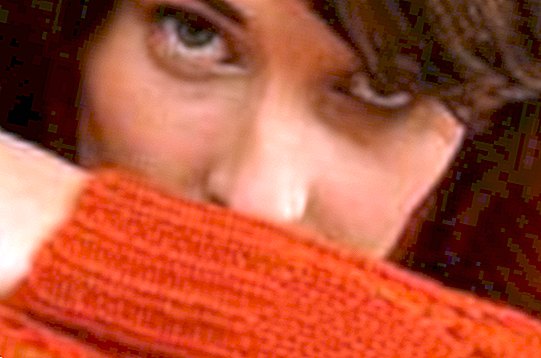Bad conscience: the guilt is always there

"What's wrong with you? You forgot Gabys birthday again! How unreliable! Soon she will not want to hear from you anymore!" Everyone knows that voice. It belongs to our conscience. Welcome to the land of crippling guilt. Because our bad conscience is not a pleasant conversation partner. It does not kindly point out that we forgot our girlfriend's birthday. No, it is presumptuous and reproachful. Our central organ for proper behavior is like New York. It never sleeps.
If we accidentally ravaged our neighbors with the road bike or spent the afternoon with our ex in the hotel room, a guilty conscience is absolutely justified. We feel bad so we can make up for what we have done.
Conscience holds out the mirror to us.
But fortunately, we rarely commit big shit. Nevertheless, we constantly quarrel with our everyday conscience, which watches us like a stern life coach down to the furthest reaches of our brains. And keeps us in debt. Compared to the loved one, because we just do not feel like having sex. To the children, because there is never enough time for them anyway, and to the boss because the design is still not finished. And we even feel guilty about the environment because our old box swallows a very unruly thirteen liters. And yet, as torturous and penetrating as we may sometimes experience, basically conscience is a great part of our psyche. It ensures in advance that our fellow human beings continue to like and appreciate us. And it proves that we are at least aware of our weaknesses. It keeps us in the mirror and helps us to recognize mistakes and smooth them out again.
The bad conscience learns to do so
Conscience is innate. In the course of our lives it fills with the rules and values of our culture. As long as we are small, our conscience is quite barbaric. It knows only good or evil. Only gradually do we learn that we remain a good person, even if we have destroyed grandma's favorite vase. And that it makes a difference, whether we do something on purpose or out of ignorance.
We develop a mature conscience when we learn to resolve moral conflicts by exposing the weaknesses of our own thinking and empathizing with others.
In our midlife, the pangs of conscience become rarer. On the one hand we have developed stronger values, on the other hand we are more independent and can ignore them if it makes sense to us. Our everyday conscience has now become our senior inner worker, reminding us to call our old aunt and switch to green electricity.
For men, this casual approach to the inner judge is easier. Because they allow themselves more aggressiveness against others, they do not look for the blame. For women, conscience is more concerned with caring. And with that the question: "What could I have done?" They direct their allegations against themselves, also because they often have not learned to express anger and anger against others. A man comes joyfully half an hour later to a date. He curses traffic, and that's the end of it. Quite different is the woman who has been waiting for him. She even manages to blame herself for being unpunctual. Because she pushed him because she was hiring, maybe because she suddenly thinks she did not tell him clearly that he should be there in time.
A guilty conscience can also be used against others
Because we know how a conscience works, we can unconsciously or deliberately use it against others, as emotional blackmail. Mothers, the first to fill our conscience with rules, are true masters in it. "How nice that you finally call me again, I thought you forgot me!" To avoid these guilty attacks, the daughter calls dutifully and grudgingly once a week at Mama. But emotional blackmail never brings the desired result. Guilt makes you unfree. And love exists only in freedom. The relationship is burdened, and nobody feels really well.
Anyone with constant remorse trying to meet the needs of others is always doomed to failure. We can not please anyone anyway. And should not even try. So, never tacitly accept the guilt, rather address it directly: "Mom, I'll call you when I feel like it and have time." Clear demarcation is the best cure for guilt.
There is a simple formula to deal with his conscience. The conscience may criticize us, but not finish it. We acknowledge that it protects us, warns us and presents problems.Conscience is our helper, not our boss. Consider our conscience as our friend. It's not easy, but it's worth every try.










